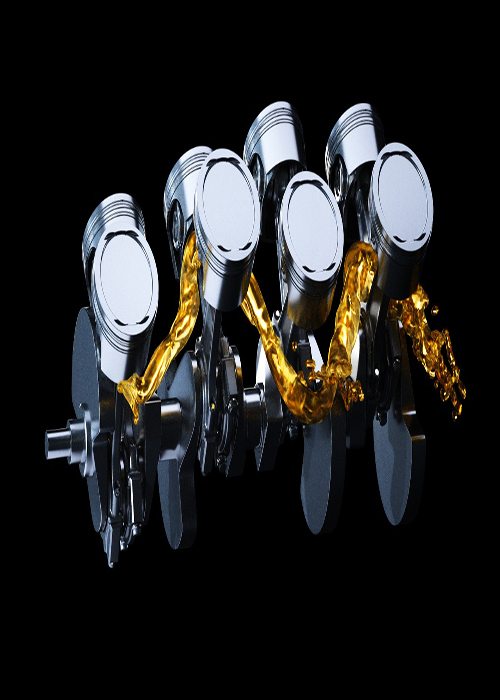The lubrication process in an engine involves providing a thin layer of oil between the moving parts, such as pistons, crankshafts, valves, and camshafts. The lubrication process ensures an effective lubricating system for the engine and plays a crucial role in achieving optimal performance and maintaining engine health.
The oils used in lubrication have excellent lubricating properties, reducing friction between the moving parts. The oil layer acts as a barrier between the mating and moving parts, reducing wear and prolonging the engine's life.
The lubrication process achieves the following functions:
1. Lubrication of moving parts: Oils provide a lubricating layer that prevents direct contact between moving parts, reducing friction, wear, and increasing the engine's lifespan.
2. Engine cooling: Oils help cool the engine by absorbing heat generated from friction and combustion and carrying it away from sensitive areas in the engine.
3. Cleaning of parts: Oils clean the moving parts by removing accumulated deposits and contaminants, helping to maintain engine performance and prevent harmful build-up.
4. Gap sealing: Oils fill the gaps between moving parts, reducing gas leakage and improving engine efficiency.
5. Noise reduction: Oil reduces shocks and vibrations between moving parts, leading to reduced noise generated by engine operation.
6. Anti-corrosion properties: Lubricating oils contain anti-corrosion additives that protect the metal parts in the engine from corrosion and rust.
7. Fuel efficiency improvement: When the lubricating layer is compatible with the moving parts, it reduces friction and improves engine efficiency and fuel consumption.
The importance of lubrication in the engine:
• Maintains engine performance: By reducing friction and wear, lubrication helps maintain engine performance and ensures efficient operation for a longer period.
• Protects the engine from damage: Lubricating oils help reduce wear and damage to the moving parts, increasing the engine's lifespan and minimizing costly breakdowns.
• Improves cooling: Lubrication contributes to engine cooling by transferring and dissipating excess heat, maintaining appropriate operating temperatures.
• Ensures parts' safety: Oils clean parts, removing debris and accumulated deposits, improving the safety and responsiveness of moving parts.
• Reduces noise: Proper lubrication reduces the noise generated by friction between the parts, resulting in a quiet and comfortable driving experience.
